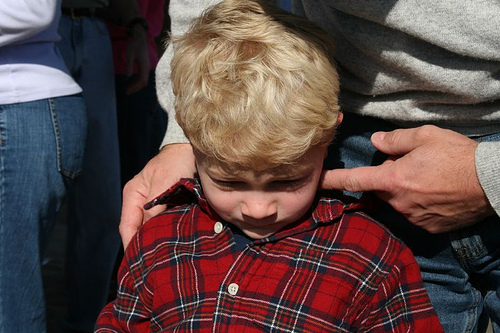
What Is Shyness?
Some people like to socialize, and they can easily jump into conversations with others, with no complications. Others, however, for one reason or another; are less straight forward and more inhibited, and this sometimes makes it difficult for them to fit in within a group of friendd. This is called "shyness". Thus, shyness is an emotion that affects how a person feels and behaves around others. It is the feeling of apprehension, the lack of comfort and the overt awkwardness that ensues within a social setting. People who are shy are generally self-conscious, which makes them very nervous in social situations.
- Important notification about information and brand names used in this slideshow!
- Photo courtesy of Jessicizer by Flickr : www.flickr.com/photos/jessicizer/2097016944/
- Photo courtesy of Aimee Quiggle by Flickr : www.flickr.com/photos/aquiggle/809266595/
- http://www.ahaparenting.com/parenting-tools/raise-great-kids/socially-intelligent-child/Help-shy-child
- http://www.shakeyourshyness.com/parentingshychildren.htm
- http://childdevelopmentinfo.com/child-psychology/anxiety_disorders_in_children/shy_child/
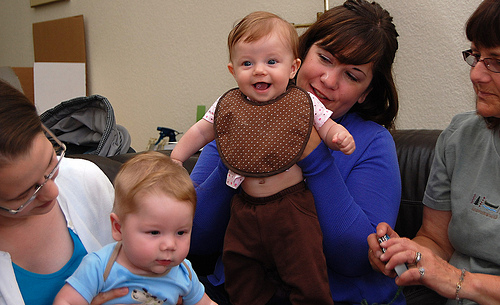
The Nature of Your Child's Shyness
For people who are naturally shy, it is important to understand what is the true nature of their shyness, in order to be able to deal with it accordingly. People could be shy arouind unfamiliar faces only, while others are shy whether they know the people around them or not. Also, there are special situations that could make a person display shyness, such as the presence of a lover, an influential figure, or a recognized personality. Another reason why you should be able to identify the nature of your child’s shyness is, to rule out social phobia, which is a psychological disorder. In social phobia, the child experiences profound and severe fear for social environments/situations, and this could be very impairing to him, at all angles.
- Important notification about information and brand names used in this slideshow!
- Photo courtesy of raecgirl by Flickr : www.flickr.com/photos/14765360@N04/4848319102/
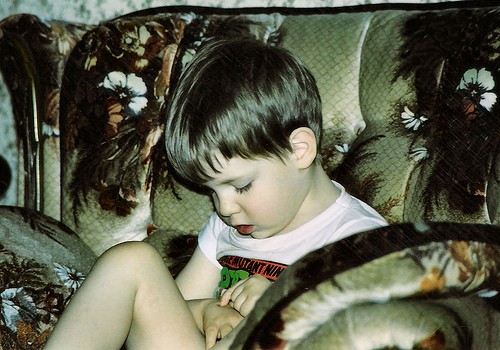
When Shyness Becomes A Problem
Some people are naturally shy, and there is nothing wrong with that. We are all allowed to have different personality traits. Besides, isn’t that what unites and completes us? However though, when shyness becomes a trait that causes social impairment and completely prevents someone from interacting with others (or even having a simple conversation), this becomes a red flad for a serious problem. Shy people should not be socialy deficient. If one’s insecurities prevent him/her from being an active part of his/her social group, from having meaningful relationships or from even expressing hiself/herself among friends, then you are dealing with another type of issue here.
- Important notification about information and brand names used in this slideshow!
- Photo courtesy of Cindy Cornett Seigle by Flickr : www.flickr.com/photos/cindy47452/47110830/
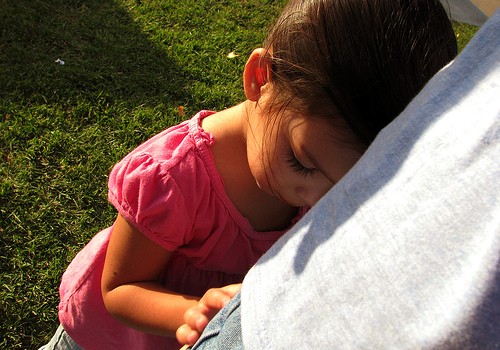
Never Label Your Child As Shy
The main reason why you shouldn’t label your child as “shy” even if you strongly believe he is is; they could use that excuse to avoid displaying their real personality. Claiming to be shy can help you get away from numerous social situations. IN addition to thar, labeling your child as “shy” could eventually make him/her believe that this is true, and this could tremendously decrease their little self-confidence which is already so hard to build on its own. Furthermore, if a child is shy, reminding him of such would surely not help with his anxiety. Instead, it would make him worse.
- Important notification about information and brand names used in this slideshow!
- Photo courtesy of astrangegirl by Flickr : www.flickr.com/photos/kdemetras/1677084320/
- parentables.howstuffworks.com/family-matters/why-you-should-stop-calling-your-child-shy.html
- http://www.parentstalk.com/expertsadvice/ea_pa_0022.html
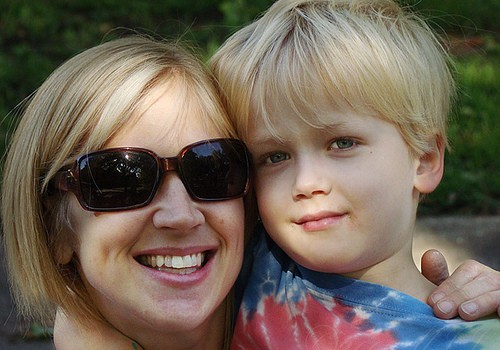
Kids Learn From Watching Us
It’s amazing how observant and astute children are! They notice everything, even the little things we are not even aware. Children learn a lot from us, and in fact most of the education and training they receive is from social learning (copying the behaviors of the caretaker). This is justified by the fact that the caretaker acts as their example, their role model; and thus anything that the caretaker does is considered “the right thing to do”. With that said, parents should use this power they have to teach their kids the right habits, boost their confidence and show them the way to expression of creativity.
- Important notification about information and brand names used in this slideshow!
- Photo courtesy of Mary J.I. by Flickr : www.flickr.com/photos/capturingwonder/3872015536/
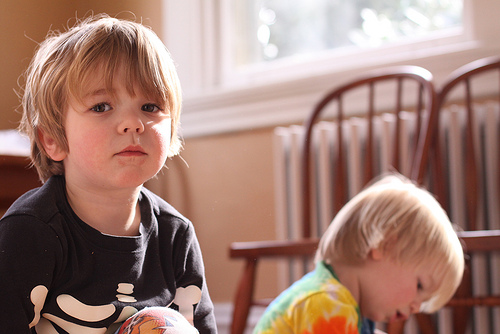
Help Them Build Their Self-Esteem
Children are not born confident, instead they become confident as they grow up and are raised in a nurturing and empowering environment. You need to help your child develop an “I can do it” attitude, and this starts with you (like we said earlier, they learn from us)! To nurture an attitude of confidence in your child, you need to constantly use words of enpowerment, encouragement and positive rewards. The child needs to constantly have his self-confidence boosted, until he truly can do it on its own. Thus, it is a parent’s duty to make sure that his/her child believes in himself.

Teach Them Social Skills Early
The sooner your child learns to interact with others, the better he becomes in social settings and the stronger is self-confidence grows. It is the simple principle that applies to anything in life: the more you do it, the better you become at ir! For children especially, social skills are important from the very start, as their entire childhood will be highlighted with various social interactions in different settings and with different sets of children. Ways for teaching social skills at home include improving oral communication and understanding (for instance, have your child repeat after you when you give him an order to make sure he understands), teach them to understand their feelings in different situationd (anger, love, happiness, sadness, etc.) teach them to be fair and just, and most of all; encourage them to always take part in conversations where they are invited to.
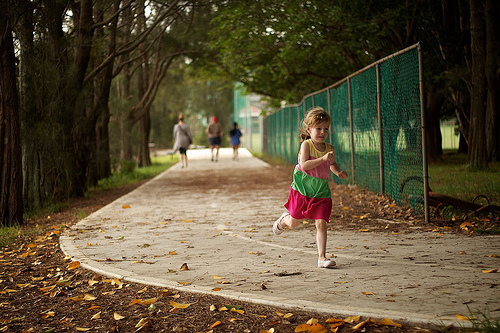
Don't teach them to be afraid of strangers
In this world and age, we can emphasize enough how important it is to protect our children from destructive social encounters. The threats are real, and we ought to avoid them. However, this doesn’t mean that we should encourage our kids to be scared of strangers, because that would only increase their social anxiety; especially if they are in a group where everyone is a stranger to them! Instead, making him/her understand that it’s okay to meet people, but he/she should always be accompanied by a trusted adult of baby-sitter. But as the child grows up and becomes old enough to walk alone, you could consider revisiting your security measures.
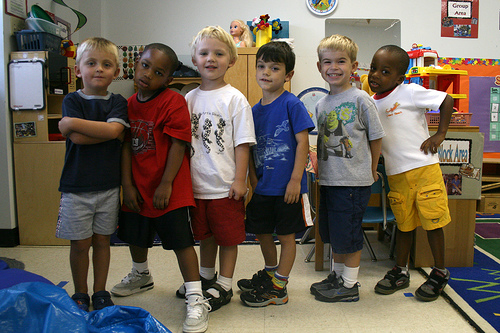
Teach your child how to make friends
Making friends might be an easy task for adults, but we wouldn’t say the same for children! Parents should actually take time to explain to their kids how important it is to make friends, and how to pick the good ones out of the groups. To further ensure that your kid is spending time with the right people, you could create small social gathering by inviting other children (that you consider would be a great fit for your child). This could range from play dates, “Art days”, lunch, and when they are close enough, why not plan a girls pajama party! You should also listen to your child as he/she narrates his day well spent with his friends. You might be able to pick up some positive/negative clues on how the day went, and whether or not these could be potential good friends for your little one.
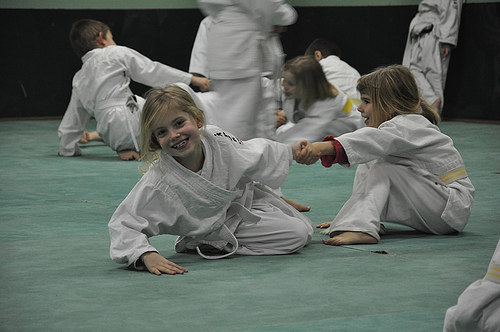
Help Your Children Identify Their Talents And Hobbies
Ultimately, when all is said and done, the best way your child would be able to know himself and express his creativity is by trying and discovering new things.This would contribute in re-inforcing his personality, assessing his likes and discarding his dislikes. Thus, expose your child to as many positive activities (hobbies) as possible: karate, ballet dancing, art and painting, singing, learning a new musical instrument, etc. All of this would tremendously contribute to your child’s intellectual development, and would open a wide door of opportunities for him/her, that you probably didn’t even know existed!
- Important notification about information and brand names used in this slideshow!
- Photo courtesy of Stefan Schmitz by Flickr : www.flickr.com/photos/stefanschmitz/3315315875/















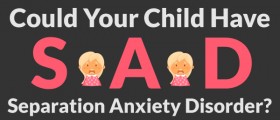



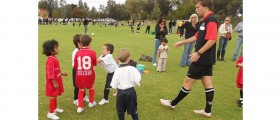
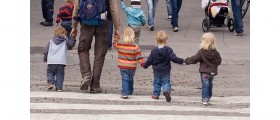






Your thoughts on this
Loading...